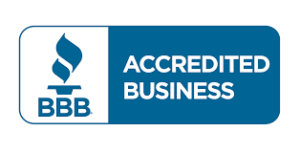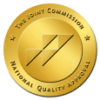As tensions rise nationally and globally, many individuals are grappling with election stress and social changes and their impact on mental health and addiction. These concerns can take a significant toll on emotional well-being, leading to increased anxiety, depression, and substance abuse.
Political uncertainty and civil unrest can trigger intense fear, helplessness, and despair. These emotions may be particularly pronounced for those with pre-existing mental health conditions or trauma histories.
Resources are available for those struggling with these issues. Crisis helplines, support services, and organizations specializing in OCD, PTSD, and trauma can provide assistance.
Educational institutions and news organizations offer factual information to help contextualize global events and reduce unfounded fears. Staying informed through reputable news sources can help provide context and reduce rumor-based fears. However, limiting excessive media consumption is essential if it’s causing distress.
The Psychological Toll of Social Unrest and Elections
Currently, social unrest and elections often dominate the headlines, creating a pervasive atmosphere of uncertainty and anxiety. The psychological impact on individuals can be profound as communities grapple with political polarization, civil rights movements, and social justice campaigns. The stress associated with these turbulent times can manifest in various ways, including heightened fear, anger, and helplessness.
The cyclical nature of elections, coupled with the intense scrutiny and debate surrounding them, can exacerbate existing mental health challenges. Understanding the psychological toll of social unrest and elections is crucial for recognizing the importance of mental health support during these critical periods.
Substance Use Disorders
Substance abuse often increases during times of conflict. People may turn to alcohol or drugs to cope with fear and uncertainty. Stress can significantly impact mental health and lead individuals to seek relief through various means, often resulting in drug addiction.
Here are some common substances that individuals may turn to as a coping mechanism for stress:
- Alcohol: Many people use alcohol to relax and temporarily escape from stress. While it can provide a short-term sense of relief, excessive consumption can lead to dependency and addiction. Long-term alcohol use can result in physical health issues, mental health disorders, and a cycle of increased stress and reliance on alcohol to cope.
- Prescription Opioids: Initially prescribed for pain relief, opioids such as oxycodone and hydrocodone may be misused for their euphoric effects. Individuals dealing with stress or trauma might misuse these medications to alleviate emotional pain. This can lead to addiction, severe withdrawal symptoms, and an overdose risk, especially when combined with other substances.
- Benzodiazepines: Medications like Xanax and Valium are often prescribed for anxiety and stress relief. However, their sedative effects can create a cycle of dependency, as individuals may rely on them for emotional stability. Long-term use can lead to tolerance, requiring higher doses for the same effect, and withdrawal symptoms when attempting to stop.
- Stimulants: Some individuals may turn to stimulants like cocaine or amphetamines to enhance mood and energy levels when feeling overwhelmed by stress. These drugs provide a temporary escape but can lead to severe psychological and physical health issues. Stimulant addiction can result in serious cardiovascular problems, anxiety, paranoia, and a significant cycle of dependency
- Cannabis: While some people use cannabis for relaxation, its use can escalate, particularly in high-stress environments. Individuals may seek out marijuana to cope with anxiety, stress, or insomnia. Regular use can lead to dependency, impacting motivation and mental health.
- Nicotine: Many people use cigarettes or vaping products as a way to cope with stress. Nicotine can produce relaxing effects, albeit temporarily. The addictive nature of nicotine can lead to long-term use and associated health problems, including lung disease and cardiovascular issues.
- Over-the-counter (OTC) Medications: Some individuals may misuse OTC medications, such as cough syrups containing dextromethorphan (DXM) or pain relievers like acetaminophen, to self-medicate for stress or emotional pain. Misuse of these substances can lead to addiction, physical dependence, and harmful side effects.
Mental Health Conditions
Understanding the mental health implications of trying times is essential for fostering resilience and promoting well-being. Mental health conditions may arise in response to the pressures and anxieties stemming from elections and social unrest, highlighting the importance of awareness and support.
- Anxiety Disorders: Anxiety disorders are among the most common mental health conditions that can emerge during times of social unrest and political upheaval. Individuals may experience excessive worry, fear, and tension related to the uncertainty of the future or their safety. This heightened state of alertness can manifest as generalized anxiety disorder (GAD), panic disorder, or specific phobias related to political events.
- Depression: The emotional turbulence associated with elections and social unrest can lead to feelings of hopelessness and despair, resulting in depression. Individuals may struggle with low energy, loss of interest in daily activities, and an overwhelming sense of sadness. The pervasive negative news cycle can contribute to a sense of helplessness, making it difficult for individuals to find motivation or joy during challenging times.
- Post-Traumatic Stress Disorder (PTSD): Exposure to violent protests, riots, or traumatic political events can lead to PTSD, particularly for those who directly experience or witness such events. Symptoms may include flashbacks, nightmares, severe anxiety, and avoidance behaviors related to reminders of the trauma. Individuals affected by PTSD may struggle to feel safe or secure in their environment, which can be further exacerbated by ongoing social and political tensions.
- Emotional Burnout: The constant barrage of negative news and the emotional toll of engaging in political discourse can lead to emotional burnout. Individuals may feel drained, disillusioned, or apathetic about societal issues, resulting in emotional exhaustion. This condition can hinder one’s ability to participate in civic engagement or contribute positively to discussions surrounding essential matters.
- Social Isolation and Loneliness: Social unrest can lead to rifts within communities, families, and friendships as differing political views create divides. This polarization can result in social isolation and loneliness, as individuals may avoid discussing political matters with others to prevent conflict. The lack of social support can further exacerbate mental health issues and feelings of alienation.
Impact On Vulnerable Populations
Social changes can disproportionately affect vulnerable groups in society. These populations may experience heightened anxiety, depression, and trauma responses.
Elderly individuals often face increased isolation during times of social upheaval. Limited access to technology and support networks can exacerbate their feelings of loneliness and anxiety.
Children and adolescents may struggle to process complex societal issues. This can lead to behavioral changes, sleep disturbances, and academic difficulties.
Low-income communities frequently bear the brunt of economic instability associated with social unrest. Job losses and reduced access to essential services can intensify their stress levels.
Impact On The Community
- Fear and distress can profoundly affect communities. Local mental health services often see increased demand during these periods.
- Crisis hotlines like the National Suicide Prevention Lifeline report higher call volumes. Mental health professionals report spikes in anxiety-related conditions.
- Educational institutions may experience disruptions. Some schools implement additional security measures or offer counseling services to students and staff. Universities sometimes host forums to discuss current events and their potential impacts.
- Community tension may rise, leading to increased police presence in some areas. Local governments often work to maintain public safety while respecting citizens’ rights to peaceful assembly.
- Local businesses may see changes in consumer behavior. Some report decreased foot traffic during heightened tension, while others selling emergency supplies might experience increased sales.
Coping Strategies
The complex emotional landscape shaped by elections and change strains societal dynamics and highlights the need for effective coping strategies and resources to navigate the resulting psychological effects.
- Regular Exercise
- Regular physical activity has profound effects on both physical and mental health. Exercise promotes the release of endorphins, often called “feel-good hormones,” which can elevate mood and create a sense of happiness. Aerobic activities like running, swimming, or cycling can significantly reduce stress and anxiety.
- Moreover, exercise serves as a constructive outlet for pent-up energy and frustration, helping to clear the mind and provide a break from daily stressors. Additionally, incorporating activities such as yoga or tai chi combines physical movement with mindfulness, further enhancing the calming effects on the mind.
- Meditation
- Meditation is another effective practice that has gained popularity for its role in anxiety reduction. By fostering mindfulness and presence, meditation can help individuals detach from overwhelming thoughts and worries about the future. Techniques such as focused breathing, visualization, or guided meditation encourage relaxation and can lower blood pressure and heart rate, creating a sense of tranquility.
- Regular meditation improves emotional regulation and resilience, allowing individuals to respond to stressors more calmly. Furthermore, research indicates that mindfulness meditation can lead to structural changes in the brain, promoting enhanced emotional control and decreased anxiety symptoms over time.
- Maintaining Social Connections
- Maintaining strong social connections is critical for emotional health and serves as a buffer against anxiety. Social support provides individuals with a sense of belonging and reassurance, helping to alleviate feelings of isolation and loneliness that can exacerbate anxiety.
- Engaging with friends, family, or support groups allows individuals to share their thoughts and feelings, often leading to valuable perspectives and advice. Participating in group activities, whether recreational or volunteer-based, not only strengthens existing relationships but also fosters new connections.
- The emotional bonds formed within a supportive community can enhance resilience against stress and create a network of individuals who can lend support during challenging times.
- Cognitive-behavioral therapy (CBT)
- CBT is an effective treatment for conflict-related trauma. CBT makes individuals aware of attention and concentration problems. It improves their organization and time management. They can break down tasks more efficiently to manage their daily lives.
- CBT builds confidence and controls impulsive behavior, and CBT is the “gold standard” of addiction therapy, making it a widely used therapy for drug addiction treatment. You look within to find the link between thoughts, emotions, and behaviors, enhancing your awareness of how factors affect recovery.
Mental Health and Substance Use Disorder Resources
Seeking help from professionals, engaging in self-care practices, and maintaining open communication within social networks are essential for navigating the psychological impact of these societal dynamics.
- Alcoholics Anonymous (AA) is a worldwide fellowship of men and women who share their experiences, strength, and hope with each other that they may solve their common problem and help others recover from alcoholism.
- American Psychological Association (APA) offers resources for coping with trauma and fears. Their website provides articles, fact sheets, and referrals to mental health professionals specializing in trauma and PTSD.
- Crisis Text Line is a 24/7 text line offering free, confidential support through text messages. Individuals can text “HOME” to 741741 to connect with a trained crisis counselor who can provide emotional support and help with anxieties.
- Harvard Kennedy School’s Belfer Center focuses on international security and diplomacy.
- Mental Health America (MHA) offers resources and information about mental health conditions. It promotes awareness and provides tools for coping and recovery. Its website features information on finding local mental health resources.
- Narcotics Anonymous is a global community-based organization that offers support to individuals struggling with drug addiction.
- National Alliance on Mental Illness (NAMI) provides support, education, and advocacy for individuals affected by mental health conditions, including those experiencing anxiety and distress. They offer a helpline, 1-800-950-NAMI, that connects individuals with resources and support groups.
- OCD Foundation is a nonprofit organization dedicated to improving the lives of individuals affected by OCD and related disorders.
- Reuters and Associated Press provide factual, unbiased reporting on global affairs, helping individuals stay informed without sensationalism.
- The Harvard Program in Refugee Trauma offers training for mental health professionals working with conflict-affected populations.
- The International Society for Traumatic Stress Studies is dedicated to the study, treatment, and prevention of trauma and its effects on individuals and communities.
- The London School of Economics offers courses on global politics and conflict resolution.
- The National Suicide Prevention Lifeline offers 24/7 assistance at 988.
- United Nations provides resources on international affairs and peacekeeping efforts.
The Role Of Education And Awareness
Education is crucial in managing election stress and social unrest. Accurate information empowers individuals to make informed decisions and understand complex issues.
Community workshops and town halls foster dialogue between diverse groups. These events promote understanding and reduce tensions. Public awareness campaigns highlight the importance of civic engagement. They encourage voting, volunteering, and peaceful protest as constructive outlets for political expression.
FAQ: How to Help an Alcoholic Family Member
If a loved one’s alcohol use is interfering with their health, relationships, job performance, or behavior — and they continue drinking despite these consequences — it may be more than occasional drinking. Patterns like drinking to cope, hiding alcohol use, or neglecting responsibilities are signs that help may be needed.
Start by educating yourself about alcohol addiction and its effects. Approach your loved one from a place of concern rather than judgment. Communicate openly in a calm setting, letting them know you care and want to support them toward healthier choices.
Setting boundaries protects both you and the person struggling with alcohol use. Clear limits help prevent enabling behaviors — such as making excuses for them or covering up consequences — and make it clear what kinds of behavior you are not willing to accept while still expressing support.
Involving professionals is often a key step toward lasting recovery. Detox centers, medical clinicians, and treatment specialists can provide structured care, medical supervision when needed, and evidence-based support that goes beyond what family members alone can offer.
Choose a moment when your loved one is sober and calm. Speak from your own perspective — explaining what you’ve observed and how it makes you feel — without accusations. Your goal is to start a dialogue, not force a decision. Let them know help is available and that you will support them through it.
Support after treatment is essential for maintaining progress. Encouragement from family members, participation in follow-up care, and helping your loved one stay connected to recovery resources can all improve their chances of long-term success.
Supporting someone with addiction can be emotionally taxing. It’s important to maintain your own well-being by setting healthy boundaries, seeking support from others, and remembering that you can care deeply for someone without sacrificing your own health and stability.
Get Family Support Now
Supporting Families Through Recovery
We understand addiction affects the whole family. Our comprehensive family program helps rebuild trust and restore relationships.
Weekly Family Therapy Sessions
Educational Workshops
Support Groups
Communication Skills Training
Get Family Support Now


The content published on Tennessee Detox Center blog pages is intended for general educational and informational purposes related to addiction, substance use disorders, detoxification, rehabilitation, mental health, and recovery support. Blog articles are designed to help readers better understand addiction-related topics and explore treatment concepts, but they are not a substitute for professional medical advice, diagnosis, or individualized treatment planning.
Addiction and co-occurring mental health conditions are complex medical issues that affect individuals differently based on many factors, including substance type, length of use, physical health, mental health history, medications, age, and social environment. Because of this variability, information discussed in blog articles—such as withdrawal symptoms, detox timelines, treatment approaches, medications, relapse risks, or recovery strategies—may not apply to every individual. Reading blog content should not replace consultation with licensed medical or behavioral health professionals.
If you or someone you know is experiencing a medical or mental health emergency, call 911 immediately or go to the nearest emergency room. Emergencies may include suspected overdose, seizures, difficulty breathing, chest pain, severe confusion, hallucinations with unsafe behavior, loss of consciousness, suicidal thoughts, or threats of harm to oneself or others. Tennessee Detox Center blog content is not intended for crisis intervention and should never be used in place of emergency care.
Detoxification from drugs or alcohol can involve serious medical risks, particularly with substances such as alcohol, benzodiazepines, opioids, and certain prescription medications. Withdrawal symptoms can escalate quickly and may become life-threatening without proper medical supervision. Any blog content describing detox, withdrawal, or substance cessation is provided to raise awareness and encourage safer decision-making—not to instruct readers to detox on their own. Attempting self-detox without medical oversight can be dangerous and is strongly discouraged.
Blog articles may discuss various addiction treatment options, including medical detox, residential or inpatient rehab, outpatient programs, therapy modalities, medication-assisted treatment, aftercare planning, and recovery support services. These discussions reflect commonly used, evidence-informed approaches but do not represent guarantees of effectiveness or suitability for every person. Treatment recommendations should always be based on a comprehensive assessment conducted by licensed professionals.
Information related to insurance coverage, treatment costs, or payment options that appears within blog content is provided for general informational purposes only. Insurance benefits vary widely depending on the individual’s plan, carrier, state regulations, and medical necessity criteria. Coverage details may change without notice, and no insurance-related statements on blog pages should be interpreted as a promise of coverage or payment. Tennessee Detox Center encourages readers to contact our admissions team directly to verify insurance benefits and eligibility before making treatment decisions.
Some blog posts may reference third-party studies, external organizations, medications, community resources, or harm-reduction concepts. These references are provided for educational context only and do not constitute endorsements. Tennessee Detox Center does not control third-party content and is not responsible for the accuracy, availability, or practices of external websites or organizations.
Blog content may also include general advice for families or loved ones supporting someone with addiction. While these discussions aim to be supportive and informative, every situation is unique. If there is an immediate safety concern—such as violence, overdose risk, child endangerment, or medical instability—emergency services or qualified professionals should be contacted right away rather than relying on online information.
Use of Tennessee Detox Center blog pages does not establish a provider–patient relationship. Submitting comments, contacting the center through a blog page, or reading articles does not guarantee admission to treatment or access to services. Recovery outcomes vary, and no specific results are promised or implied.
If you are struggling with substance use, withdrawal symptoms, or questions about treatment, we encourage you to seek guidance from licensed healthcare providers. For personalized information about treatment options or insurance verification, you may contact Tennessee Detox Center directly. For emergencies, call 911 immediately.

Medically Reviewed By:
Dr. Vahid Osman, M.D.Board-Certified Psychiatrist and Addictionologist
Dr. Vahid Osman is a Board-Certified Psychiatrist and Addictionologist who has extensive experience in skillfully treating patients with mental illness, chemical dependency and developmental disorders. Dr. Osman has trained in Psychiatry in France and in Austin, Texas. Read more.

Clinically Reviewed By:
Josh Sprung, L.C.S.W.Board Certified Clinical Social Worker
Joshua Sprung serves as a Clinical Reviewer at Tennessee Detox Center, bringing a wealth of expertise to ensure exceptional patient care. Read More
- Alcoholics Anonymous. (n.d.). Welcome to AA. Retrieved July 29, 2025, from1 rel=”external noopener noreferrer”2 https://www.aa.org/
- American Psychological Association. (n.d.). Trauma and PTSD resources. Retrieved July 29, 2025, from https://www.apa.org/topics/ptsd
- Associated Press. (n.d.). AP News. Retrieved July 29, 2025, from1 rel=”external noopener noreferrer”2 https://apnews.com/
- Crisis Text Line. (n.d.). Get help now. Retrieved July 29, 2025, from https://www.crisistextline.org/
- Harvard Kennedy School – Belfer Center. (n.d.). Programs on international security and diplomacy. Retrieved July 29, 2025, from https://www.belfercenter.org/
- Harvard Program in Refugee Trauma. (n.d.). Training and research for conflict-affected populations. Retrieved July 29, 2025, from https://hprt-cambridge.org/
- International OCD Foundation. (n.d.). Obsessive Compulsive Disorder support and resources. Retrieved July 29, 2025, from 1 rel=”external noopener noreferrer”2https://iocdf.org/
- International Society for Traumatic Stress Studies. (n.d.). About ISTSS. Retrieved July 29, 2025, from https://www.istss.org/
The Joint Commission – The Gold Seal of Approval® signifies that Tennessee Detox Center meets or exceeds rigorous performance standards in patient care, safety, and quality. It reflects a commitment to continuous improvement and clinical excellence.

LegitScript Certified – Confirms that Tennessee Detox Center operates in full compliance with laws and regulations, and meets high standards for transparency and accountability in addiction treatment marketing.

BBB Accredited – Demonstrates ethical business practices, commitment to customer satisfaction, and a trusted reputation within the community.
Psychology Today Verified – Indicates that Tennessee Detox Center is listed on Psychology Today, a trusted directory for verified mental health providers and treatment centers.
HIPAA Compliant – Ensures all patient health information (PHI) is protected and managed in accordance with strict federal privacy and data security standards.
ASAM Member – Tennessee Detox Center is a proud member of the American Society of Addiction Medicine (ASAM), reflecting a commitment to science-driven and evidence-based treatment standards.

Rutherford County Chamber of Commerce – Membership signifies active participation in the local community and support for regional growth and civic collaboration.
Holistic Detox Services
- Medical Detox
- Drug Detox
- Alcohol Detox
- Polysubstance Detox
- Rapid Detox
- Cocaine Detox
- Fentanyl Detox
- Heroin Detox
- Kratom Detox
- Meth Detox
- Opioid Detox
- Xanax Detox
Compassionate Rehab Services
Evidence-Based Treatment
Did you know that your insurance plan may cover medical detox?
What Our Patients Say: Stories of Hope and Recovery
Hear directly from those who have walked the path to recovery. Our patients’ stories highlight the compassionate care, effective programs, and life-changing support they’ve experienced. Let their journeys inspire you as you take your first steps toward healing.










Thank you all so much!




















The facility itself is clean, well-maintained, and equipped with all the necessary amenities to provide a serene and supportive environment.
What truly stands out is the personalized approach to care. The team developed a treatment plan tailored to my specific needs, incorporating both medical and holistic therapies. This comprehensive approach not only addressed my physical withdrawal symptoms but also supported my mental and emotional well-being.
The counselors and therapists offer a range of therapies that helped me understand the root causes of my addiction and develop effective coping strategies. Group therapy sessions provided a safe space to share experiences and gain insights from others on similar journeys.
Overall, my experience with this medical detox program was life-changing. The compassionate and skilled staff, combined with the personalized treatment approach, provided me with the foundation I needed for a successful recovery. I highly recommend this facility to anyone seeking a safe and supportive environment for detox and recovery.
But it's the people who make this place truly special. The staff, they've been there, they understand the struggle. No judgment, just support, encouragement, and a genuine desire to help you heal. They treated me like an old friend, even though I was just visiting for my buddy.
They've got a whole range of therapies to help you on your journey – individual counseling, group sessions, and even a fitness center to get you moving again. It's not just about detox. It's about rebuilding your life from the ground up.
My friend, the owner, he's living proof that this place works. He poured his heart into creating a haven for those seeking recovery, and his passion shines through in every detail.
So, if you're ready to take that first step, this is the place. Trust me, they'll walk beside you every step of the way.


